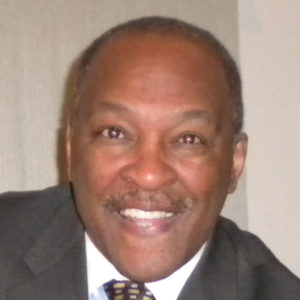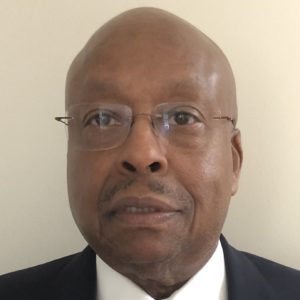In Black communities, there is an old saying that is often applied to characterize the nation’s disparities between African Americans and Whites: “when White folks catch a cold, Black folks catch pneumonia.” One domestic measurement of that age-old wisdom has been the lopsided impact of the COVID-19 pandemic on Blacks.

While comprising 14 percent of the U.S. population, Blacks are 33 percent of the coronavirus deaths; they are also disproportionately represented in jobs and living conditions with the greatest exposure to the coronavirus. Then there are what economist Robert Reich calls the forgotten – the prison population, those in homeless shelters and in nursing homes – places where social distancing is not an option.
Blacks are more vulnerable to health conditions such as hypertension, diabetes, and asthma which enhance one’s chances of contracting the disease. COVID-19 has also brought hardships to Black-owned businesses where 40 percent of revenue is derived from the leisure, hospitality, and retail sectors that have been ravaged. African Americans are also overrepresented in the categories of the unemployed, the furloughed, and those with housing and food insecurity.

Historically Black colleges and universities are not removed from any of these aggravating factors as the core of their student enrollments is from these homes, families, communities, and situations. Planning for the Fall semester will be especially difficult for these institutions and others that have already been experiencing enrollment declines and that are without sufficient endowments to withstand this unprecedented occurrence.
For these schools, the tuition-based business model, already on thin ice before the coronavirus, will be further impacted by students who may not return to campus. In making these decisions, students from unemployed families and without having had summer employment will weigh the soaring costs of tuition and expenses.
They will be apprehensive about incurring insurmountable debt as compared to the value of on-line and virtual classroom course offerings and other substitutes for a compromised campus experience; the health risks of dormitories, cafeterias, and other logistical arrangements; and the availability and frequency of testing for COVID-19.
The American Council on Education predicts a 15 percent Fall college enrollment decline, mostly from out-of-state students who pay higher tuition at state schools. Close to 50 percent of HBCUs are state schools whose budgets will be reduced by this income shortage as growing numbers of financially distressed students will consider safer, less expensive, and closer-to-home higher education choices.
The generally smaller and already financially strained private HBCUs will find it difficult to sustain themselves with further enrollment decreases, not easily recoverable in a post-coronavirus vaccine America. Even the upper-tiered and robustly endowed institutions like Morehouse ($112 million), Hampton ($ 275 million), Xavier ($171 million) and Spelman ($285 million) will be tested.
Public and private HBCU endowments are roughly 70 percent smaller than those of predominately White institutions (PWIs). None of the 90 colleges with endowments of more than $1 billion is an HBCU, and even the wealthiest, Howard University, with upwards of $570 million ranks one hundred and sixtieth, an outlier for HBCUs. According to the U.S. Government Accountability Office, the median endowment at HBCUs is $12 million, compared to the median endowment of $23 million for comparable PWIs.
North Carolina, home to 10 HBCUs, more than any other state, has only North Carolina A&T ($57 million) ranking in the top 10 for HBCU endowments. The proverbial rainy day is upon us, and modest HBCU endowments will demand calculated budget adjustments.
The U.S. higher education system has been upended by COVID-19, exposing fault lines in schools whose financial models have been dependent on students’ willingness to assume towering debts for degrees and college experiences advertised as cost effective.
Open, admit them, provide financial loans, and they will come, is no longer a valid marketing strategy, especially for HBCUs whose students and families have been devastated by a massive economic downturn. The coronavirus has worsened every survival issue confronting HBCUs. While students are clamoring for reductions in tuition, most schools are responding with attempts to increase financial aid – a strategy that may backfire.
COVID-19 is a learning moment about the necessity of well-funded endowments for higher education. Moody’s Investment Service cautions that schools with smaller endowments – across the board – may face closure.
HBCUs with larger endowments will experience less difficulty. The Coronavirus Aid, Relief and Economic Security Act (CARES) contains slightly more than $1 billion for HBCUs, but when parceled to the nation’s 105 HBCUs , whose endowments have been weakened by the downturn in the economy, the question is: will it be enough?
Al-Tony Gilmore is a historian and archivist emeritus of the National Education Association, was a professor at Howard University, and most recently worked as a visiting scholar at George Washington University. Walter C. Farrell Jr. has been a professor at the University of North Carolina at Chapel Hill, the University of Wisconsin-Milwaukee, Cheyney University of Pennsylvania, and Prairie View A & M University. Both are HBCU alumni.


Great and very informative article, sadly the reality of the past and present model of financial stability of our beloved HBCUs can’t sustain due present circumstances. Therefore, the most of the HBCUs may have to decide to switch from private to public to receive adequate funding to stay financially sound.